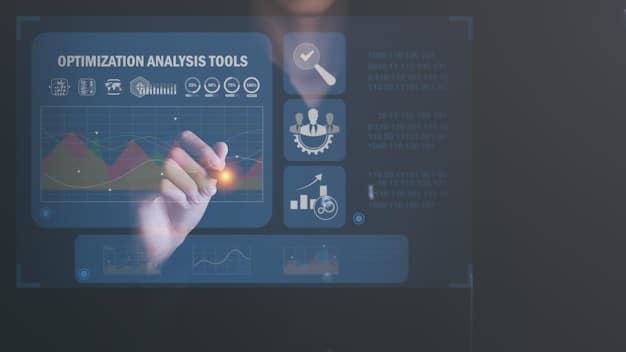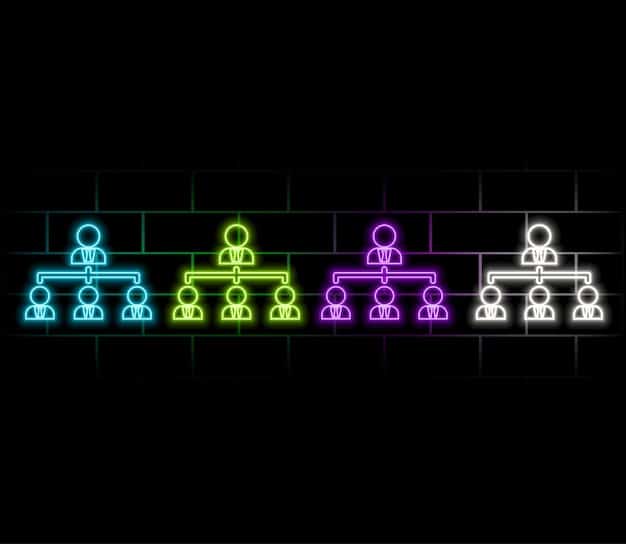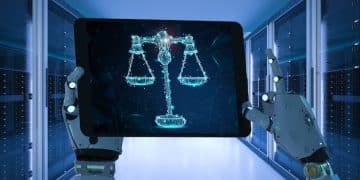HR Tech Spotlight: Revolutionizing US Recruitment & Employee Management in 2025

The emergence of cutting-edge HR Tech startups is poised to redefine recruitment and employee management for US companies by 2025, introducing innovative solutions that enhance efficiency, improve talent acquisition, and optimize the overall employee experience through automation, data analytics, and AI-driven insights.
The landscape of human resources is undergoing a profound transformation, driven largely by the innovative strides in technology. The year 2025 is anticipated to be a pivotal moment, with a Startup Spotlight: HR Tech – Streamlining Recruitment and Employee Management for US Companies in 2025 playing a crucial role in shaping the future of work. These burgeoning enterprises are not merely digitizing existing processes; they are reimagining how businesses attract, hire, nurture, and retain talent, offering sophisticated tools that promise unprecedented levels of efficiency, engagement, and strategic insight for US companies.
The Evolving Role of HR in the Digital Age
The traditional image of human resources departments, buried under paperwork and administrative burdens, is rapidly fading. In its place, a dynamic, data-driven, and strategically vital function is emerging, largely propelled by technological advancements. This shift is not just about automation; it’s about empowering HR professionals to become architects of organizational culture, talent strategists, and custodians of the employee experience. The demands of a globalized, agile workforce necessitate tools that can keep pace with rapid changes, diverse needs, and evolving regulatory landscapes.
This evolution brings both opportunities and challenges. On one hand, technology liberates HR from mundane tasks, allowing expertise to be redirected towards strategic initiatives like talent development, diversity and inclusion, and predictive analytics. On the other, it requires a new skillset within HR — embracing data literacy, understanding AI capabilities, and becoming proficient in integrating complex technological ecosystems. The modern HR professional must navigate this intricate terrain, utilizing tech to unlock human potential rather than merely manage it. The focus shifts from process management to people empowerment, from compliance to culture building, and from reaction to proactive foresight.
From Administrative Burden to Strategic Partner
The core administrative functions of HR – onboarding, payroll, benefits administration – have long consumed a significant portion of departmental resources. However, the advent of sophisticated HR tech solutions has begun to automate these processes, freeing up valuable time and personnel. This automation is more than just a convenience; it is a strategic imperative.
- Enhanced Efficiency: Automating routine tasks drastically reduces the time spent on administrative work, allowing HR teams to focus on higher-value activities.
- Reduced Errors: Digital systems minimize human error in data entry and calculations, leading to greater accuracy in payroll, benefits, and compliance.
- Cost Savings: Streamlined operations often translate into tangible cost reductions related to labor, printing, and storage.
The Human Element Amidst Automation
While technology automates tasks, it paradoxically amplifies the importance of the human touch in HR. With administrative tasks offloaded, HR professionals can dedicate more time to understanding employee needs, fostering a positive work environment, and addressing complex interpersonal dynamics. This renewed focus on the human element ensures that technological advancements serve to enrich the employee experience, not diminish it. The aim is to create a symbiotic relationship where technology handles the repetitive, and humans engage in the empathetic and strategic. Data points and algorithms can inform decisions, but the nuanced understanding of human motivation and organizational culture remains uniquely within the HR domain, enhanced by the clarity that technology provides.
Recruitment Reimagined: AI, Analytics, and Candidate Experience
Recruitment, often the initial touchpoint between an organization and its potential talent, stands to gain immensely from HR Tech innovations. The traditional methods of sifting through countless resumes and conducting manual screenings are giving way to intelligent, data-driven approaches that promise not only to accelerate the hiring process but also to improve the quality of hires. These advancements are critical for US companies vying for top talent in competitive markets, where efficiency and candidate experience are paramount.
The shift is from reactive hiring to proactive talent acquisition. AI algorithms can identify ideal candidates based on more than just keywords, analyzing skills, experience, and even cultural fit. Predictive analytics can forecast future talent needs, allowing companies to build talent pipelines long before vacancies arise. Furthermore, the candidate experience is moving from a transactional interaction to an engaging journey, where communication is personalized, feedback is timely, and the application process is seamless. This holistic approach ensures that companies not only attract the right fit but also leave a positive impression, regardless of the hiring outcome, thereby strengthening their employer brand in the long run.
Leveraging AI and Machine Learning in Talent Acquisition
Artificial intelligence (AI) and machine learning (ML) are at the forefront of this recruitment revolution. These technologies can process vast amounts of data, identifying patterns and making predictions that human recruiters might miss.
- Automated Sourcing: AI tools can scour diverse talent pools, including social media and professional networks, to identify passive candidates who might be a good fit.
- Resume Screening and Matching: ML algorithms can quickly analyze resumes, identifying qualified candidates based on predefined criteria and reducing bias that might be present in manual reviews.
- Chatbots for Candidate Engagement: AI-powered chatbots can answer candidate queries 24/7, provide updates on application status, and even conduct initial screenings, enhancing responsiveness and candidate satisfaction.
Data-Driven Decisions in Hiring
Beyond automation, HR Tech provides sophisticated analytics that transform recruitment from an art into a more precise science. Companies can now leverage data to understand the effectiveness of different sourcing channels, identify bottlenecks in the hiring process, and predict the likelihood of a candidate’s success within the organization. This data-driven approach fosters continuous improvement in recruitment strategies. Understanding metrics like time-to-hire, cost-per-hire, and offer acceptance rates allows organizations to fine-tune their approaches, ensuring they are not just filling roles but building high-performing teams. This analytical depth also supports diversity initiatives by highlighting potential biases in hiring funnels, enabling data-informed interventions.
Companies can also use predictive analytics to forecast future talent needs based on business growth projections and attrition rates. This proactive approach allows HR departments to strategically build talent pipelines, reducing the scramble for urgent hires and ensuring a consistent flow of qualified candidates. The ability to model different hiring scenarios further enhances strategic planning, making HR a genuine strategic partner in business growth.
Enhancing the Candidate Experience
In today’s competitive job market, the candidate experience is paramount. A positive experience can significantly impact a company’s employer brand, attracting future talent and even turning rejected candidates into brand advocates. HR Tech is facilitating this by making the application process more user-friendly and transparent. From mobile-friendly application forms to personalized communication at every stage, technology ensures that candidates feel valued and informed throughout their journey. This holistic approach to candidate engagement is crucial for maintaining a strong talent pipeline and a positive reputation.

Optimizing Employee Management: Performance, Learning, and Engagement
Once talent is acquired, the focus shifts to internal management—nurturing growth, monitoring performance, and fostering a thriving workplace culture. HR Tech provides sophisticated tools that transcend traditional annual reviews and one-off training sessions, offering continuous, personalized approaches to employee development and engagement. For US companies, this translates into higher retention rates, improved productivity, and a more resilient workforce capable of adapting to future challenges. The essence of modern employee management is proactive support rather than reactive intervention. By harnessing data from various touchpoints, HR can gain a holistic view of the employee journey, from onboarding to professional development and succession planning, enabling personalized strategies at scale.
Performance Management Evolved
Gone are the days of rigid, infrequent performance reviews. Modern HR Tech solutions advocate for continuous performance management, providing platforms for real-time feedback, goal setting, and progress tracking.
- Continuous Feedback Loops: Employees and managers can provide and receive feedback regularly, ensuring timely course correction and celebrating successes.
- Goal Alignment and Tracking: Platforms allow for the clear articulation of individual and team goals, linking them directly to organizational objectives for transparency and accountability.
- Performance Analytics: Data collected from these systems can identify high-performers, pinpoint areas for improvement, and inform strategic decisions regarding talent development and succession planning.
Personalized Learning and Development
Employee growth is a critical component of retention and organizational success. HR Tech is revolutionizing learning and development (L&D) by offering personalized, on-demand training experiences. Learning Management Systems (LMS) integrated with AI can recommend courses based on an employee’s role, career aspirations, and identified skill gaps. This makes learning more relevant and engaging, fostering a culture of continuous improvement. The agility of these platforms means that companies can quickly roll out new training modules to address emerging needs, such as adapting to new technologies or complying with evolving regulations, ensuring the workforce remains competitive and adaptable. This extends beyond formal courses to include microlearning modules, gamified experiences, and access to a vast library of resources.
Boosting Employee Engagement and Well-being
Employee engagement is a significant driver of productivity and retention. HR Tech tools can help measure and improve engagement by providing platforms for sentiment analysis, employee pulse surveys, and recognition programs. These insights allow companies to identify areas of dissatisfaction or burnout and implement targeted interventions. Beyond engagement, a growing focus on employee well-being is emerging, with platforms offering tools for mental health support, stress management, and physical wellness initiatives. These holistic approaches contribute to a healthier, happier, and more productive workforce, reinforcing the idea that invested employees are crucial for long-term organizational success. Creating a positive employee experience is not just about perks; it’s about fostering an environment where individuals feel valued, supported, and connected to their work and their colleagues, leading to higher morale and reduced turnover.
The Rise of Integrated HR Platforms (HRIS/HRMS)
The concept of Human Resources Information Systems (HRIS) or Human Resources Management Systems (HRMS) is not new, but the capabilities and integration of these platforms are rapidly expanding. Modern HRIS/HRMS solutions are evolving beyond mere record-keeping to become comprehensive, integrated ecosystems that manage the entire employee lifecycle, from hire to retire. For US companies, this means a unified source of truth for all employee data, enabling seamless workflows, robust reporting, and a holistic view of the workforce. This comprehensive integration removes data silos, reducing discrepancies and improving data integrity, which is essential for compliance and strategic decision-making. The ability to access real-time data across various HR functions empowers leaders to make more informed choices, identify trends, and address challenges proactively, rather than reactively.
Unifying Data and Workflows
The primary advantage of integrated HR platforms is their ability to consolidate disparate HR functions into a single system. Instead of relying on multiple standalone tools for recruitment, payroll, performance management, and benefits administration, all processes are centralized.
- Single Source of Truth: All employee data resides in one place, ensuring consistency and accuracy across departments.
- Automated Workflows: Tasks such as onboarding, promotions, and offboarding can be automated to flow seamlessly across different modules of the system.
- Enhanced Reporting and Analytics: With all data integrated, HR professionals can generate comprehensive reports and gain deeper insights into their workforce dynamics.
Scalability and Adaptability
Modern HRIS/HRMS solutions are designed to be highly scalable, accommodating the needs of businesses of all sizes, from small startups to large enterprises. They also offer a high degree of adaptability, allowing organizations to customize modules and workflows to fit their unique operational requirements and evolving business strategies. This flexibility is crucial in a dynamic business environment where rapid adjustments are often necessary. Furthermore, cloud-based HRIS/HRMS platforms provide increased accessibility, allowing employees and managers to access HR services and data anytime, anywhere, fostering a more agile and responsive workforce. The ability to integrate with other enterprise systems, such as ERP or CRM, further enhances their utility, creating a truly connected operational environment.
Addressing Compliance and Data Security in HR Tech
As HR Tech revolutionizes the workplace, it also introduces significant considerations around compliance and data security. Handling sensitive employee information, from personal details to financial records and performance data, necessitates a robust framework to ensure privacy and adherence to legal regulations. For US companies, navigating the complexities of federal and state laws regarding data protection and employee rights is paramount. The increasing sophistication of cyber threats makes data security an ongoing, critical responsibility, requiring constant vigilance and investment in resilient protective measures. Building trust with employees and other stakeholders depends heavily on an organization’s ability to demonstrate a clear commitment to safeguarding their personal data.
Navigating Regulatory Landscapes
The regulatory landscape for human resources and data privacy is complex and ever-evolving. HR Tech solutions must be designed with compliance in mind.
- Data Privacy Regulations: Adherence to laws like GDPR (for companies with European ties), CCPA, and various state-specific data privacy regulations is crucial. HR systems must have features that support data access, deletion, and consent management.
- Employment Laws: Ensuring compliance with federal employment laws (e.g., FLSA, ADA, FMLA) and state-specific labor laws is vital. HR Tech can help automate processes that ensure fair hiring practices, accurate wage calculations, and proper leave management.
- Accessibility Standards: Technology must also adhere to accessibility standards (e.g., WCAG) to ensure that all employees, including those with disabilities, can access and interact effectively with HR systems.
Fortifying Data Security
The vast amount of sensitive data managed by HR systems makes them prime targets for cyberattacks. Robust security measures are non-negotiable.
- Encryption: Data, both in transit and at rest, must be encrypted to prevent unauthorized access.
- Access Controls: Granular access controls ensure that only authorized personnel can view or modify specific types of data.
- Regular Audits and Penetration Testing: Continuous monitoring, security audits, and penetration testing help identify and rectify vulnerabilities before they can be exploited.
Investing in secure HR Tech is not just a matter of compliance; it’s about building and maintaining trust with employees and protecting the organization’s reputation. A data breach can have devastating financial and reputational consequences, making proactive security measures an essential component of any HR Tech strategy. Companies must partner with HR Tech providers that prioritize security and demonstrate a clear understanding of the regulatory requirements they operate under. This due diligence is fundamental to mitigating risks and ensuring the long-term viability and integrity of HR functions. The commitment to data security should extend beyond technical safeguards to include comprehensive employee training on data handling best practices and a culture of security awareness throughout the organization.
Future Trends and Disruptors in HR Tech 2025
As we look towards 2025, the HR Tech landscape is poised for further disruption and innovation. Several emerging trends promise to reshape how companies manage their human capital, pushing the boundaries of what is possible within the realm of recruitment and employee management. These trends are not just incremental improvements; they represent shifts in thinking about how technology can fundamentally enhance the human work experience and drive organizational success in unprecedented ways. The focus will increasingly be on more personalized, predictive, and proactive solutions that anticipate needs rather than merely respond to them.
Hyper-Personalization and Adaptive Learning
The future of HR Tech will increasingly focus on hyper-personalization. This means tailoring experiences for each individual employee, from custom learning paths to personalized benefits recommendations, guided by AI. Adaptive learning platforms, for instance, will assess an employee’s proficiency and learning style, then dynamically adjust content and pace to optimize knowledge acquisition. This level of customization fosters greater engagement and ensures that development efforts are highly relevant and effective, maximizing individual potential.
The Metaverse and Immersive HR Experiences
While still in nascent stages, the metaverse holds potential for HR. Imagine onboarding new employees in a virtual office, conducting immersive training simulations, or hosting global team meetings in a shared digital space. These virtual environments could offer entirely new ways for employees to connect, collaborate, and learn, breaking down geographical barriers and fostering a stronger sense of community. The integration of augmented reality (AR) and virtual reality (VR) will create more engaging and memorable experiences for candidates during recruitment, allowing them to virtually tour offices or interact with future colleagues, even if they are halfway across the world.
Predictive Analytics for Workforce Planning
The power of predictive analytics will continue to grow, enabling HR to move from reactive decision-making to proactive workforce planning. Beyond simply forecasting talent needs, future tools will leverage vast datasets to predict employee churn, identify potential skill gaps before they become critical, and even anticipate the impact of organizational changes on employee morale and productivity. This strategic foresight will allow companies to implement preventative measures and optimize their talent strategies well in advance, ensuring business continuity and competitive advantage. The ability to simulate various scenarios and understand their potential human capital implications provides an invaluable tool for strategic leaders.
Ethical AI and Algorithmic Fairness
As AI becomes more pervasive in HR, the focus on ethical AI and algorithmic fairness will intensify. This ensures that AI-driven tools are unbiased, transparent, and fair, particularly in areas like recruitment, performance evaluations, and promotion decisions. Startups will need to develop robust frameworks for auditing their algorithms, identifying and mitigating biases, and ensuring that their tech promotes equity and inclusion. Explainable AI (XAI) will also become more crucial, allowing HR professionals to understand how AI systems arrive at their recommendations, fostering trust and accountability. The responsible deployment of AI will be a distinguishing factor for leading HR Tech solutions.
The Impact on US Companies and the Workforce
The rapid evolution of HR Tech, especially the innovations spearheaded by startups, is set to have a profound and multifaceted impact on US companies and their workforce by 2025. This influence extends beyond mere operational efficiencies, touching upon cultural shifts, competitive advantages, and the very nature of work. Companies that embrace these changes are likely to emerge as leaders in talent management, foster more engaged and productive workforces, and ultimately secure a stronger foothold in the market. The transformation isn’t just about adopting new software; it’s about fundamentally rethinking the employer-employee relationship and leveraging technology to unlock new levels of human potential.
Boosting Productivity and Efficiency
One of the most immediate impacts of HR Tech is the significant boost in productivity and operational efficiency. Automating routine tasks within recruitment, onboarding, payroll, and benefits administration frees up HR professionals to focus on strategic initiatives. This redistribution of resources allows for a more proactive approach to talent management, leading to faster hiring cycles, reduced administrative overhead, and more accurate data for decision-making. Companies can streamline processes that once consumed substantial time and resources, directly contributing to bottom-line improvements.
Enhancing Employee Experience and Retention
HR Tech plays a crucial role in enhancing the overall employee experience. From seamless onboarding processes to personalized learning and development pathways, and platforms for continuous feedback and recognition, these tools contribute to a more positive and engaging work environment. When employees feel supported, valued, and have opportunities for growth, their satisfaction increases, leading to higher retention rates. This is vital in a competitive talent market, as reducing turnover saves significant costs associated with recruitment and training new hires. A positive employee experience fostered by thoughtful tech integration also elevates an employer’s brand, making it more attractive to prospective talent.
Data-Driven Strategic Decision Making
The analytical capabilities embedded within modern HR Tech platforms empower US companies to make truly data-driven strategic decisions. HR leaders can now access real-time insights into workforce demographics, performance trends, engagement levels, and skill gaps. This rich data enables organizations to forecast future talent needs, identify high-potential employees for succession planning, evaluate the effectiveness of HR initiatives, and even predict potential issues like employee turnover. By transforming HR from a cost center into a strategic partner, companies gain a competitive edge by optimizing their human capital in alignment with broader business objectives. This insight allows for agile adjustments to talent strategies in response to market shifts.
Fostering a Culture of Agility and Adaptability
The dynamic nature of HR Tech tools fosters a culture of agility and adaptability within organizations. Features that support continuous performance management, agile learning and development, and flexible work arrangements enable companies to respond more rapidly to changes in the market, technology, or workforce needs. This technological infrastructure supports a less rigid, more adaptive organizational structure, crucial for navigating the complexities of the modern business world. It encourages continuous feedback, rapid iteration, and a mindset of ongoing improvement, making organizations more resilient and capable of thriving amidst disruption. The ability to pivot quickly and efficiently based on data-driven insights becomes a core competency.
Addressing the Talent Gap and Skill Development
For US companies facing a persistent talent gap, HR Tech provides vital tools for both talent acquisition and internal skill development. AI-powered recruitment helps identify elusive candidates, while sophisticated learning management systems (LMS) can upskill and reskill existing employees to meet evolving business demands. By investing in technology that supports continuous learning, companies can ensure their workforce remains relevant and competitive, transforming challenges into opportunities for growth and innovation. This proactive approach to talent development is key to building a future-proof workforce capable of driving innovation and maintaining a competitive edge. It turns the skills gap from a crisis into a manageable, strategic initiative.
| Key Aspect | Brief Description |
|---|---|
| 🚀 Recruitment Reimagined | AI & analytics are streamlining sourcing, screening, and enhancing candidate experience for quality hires. |
| 📈 Employee Optimization | Tech empowers continuous performance, personalized learning, and robust engagement/well-being initiatives. |
| 🔒 Data Compliance & Security | Crucial focus on regulatory adherence (e.g., CCPA) and robust cybersecurity measures for sensitive data. |
| 🔮 Future Trends | Hyper-personalization, immersive experiences (metaverse), and predictive analytics shaping HR’s future. |

Frequently Asked Questions about HR Tech in 2025
▼
HR Tech broadly refers to software and hardware solutions designed to automate and optimize human resources functions. In 2025, it’s crucial for US companies to stay competitive, attract top talent, enhance employee experience, and ensure compliance in an increasingly digital and dynamic work environment. It enables data-driven decisions and streamlines operations, moving HR from an administrative role to a strategic business partner.
▼
HR Tech streamlines recruitment through AI-powered applicant tracking systems (ATS) for resume screening, chatbots for candidate engagement, and predictive analytics for identifying ideal hires. These tools significantly reduce time-to-hire, minimize bias, and enhance the overall candidate experience by making processes more efficient, personalized, and data-informed.
▼
For employee management, HR Tech offers benefits like continuous performance feedback, personalized learning paths, and robust engagement platforms. It helps foster employee well-being, improves retention by addressing needs proactively, and provides insights into workforce productivity and development, ultimately creating a more engaged and satisfied workforce that contributes positively to organizational goals.
▼
HR Tech addresses data security and compliance through advanced encryption, stringent access controls, and adherence to privacy regulations like CCPA. Providers are continuously enhancing their systems to protect sensitive employee data from cyber threats. Regular audits and updates ensure systems remain compliant with evolving legal frameworks, mitigating risks and building trust with employees regarding their personal information.
▼
By 2025, US companies should watch for trends like hyper-personalization of employee experiences, the potential integration of the metaverse for immersive HR, and advanced predictive analytics for workforce planning. Additionally, the focus on ethical AI and algorithmic fairness will be crucial to ensure unbiased and transparent HR processes, shaping a more equitable and efficient future of work.
Conclusion
The transformative influence of HR Tech startups on recruitment and employee management for US companies by 2025 cannot be overstated. These innovations are reshaping the very fabric of human resources, moving it from a traditionally administrative function to a strategic, data-driven powerhouse. By embracing AI, analytics, and integrated platforms, businesses can streamline operations, enhance the employee experience, and foster a culture of growth and engagement. While navigating challenges like data security and compliance remains paramount, the future promises even more personalized and immersive HR solutions. Ultimately, investing in cutting-edge HR Tech is not just about efficiency; it’s about building resilient, adaptable, and highly engaged workforces that drive sustainable success in an increasingly dynamic global landscape.





